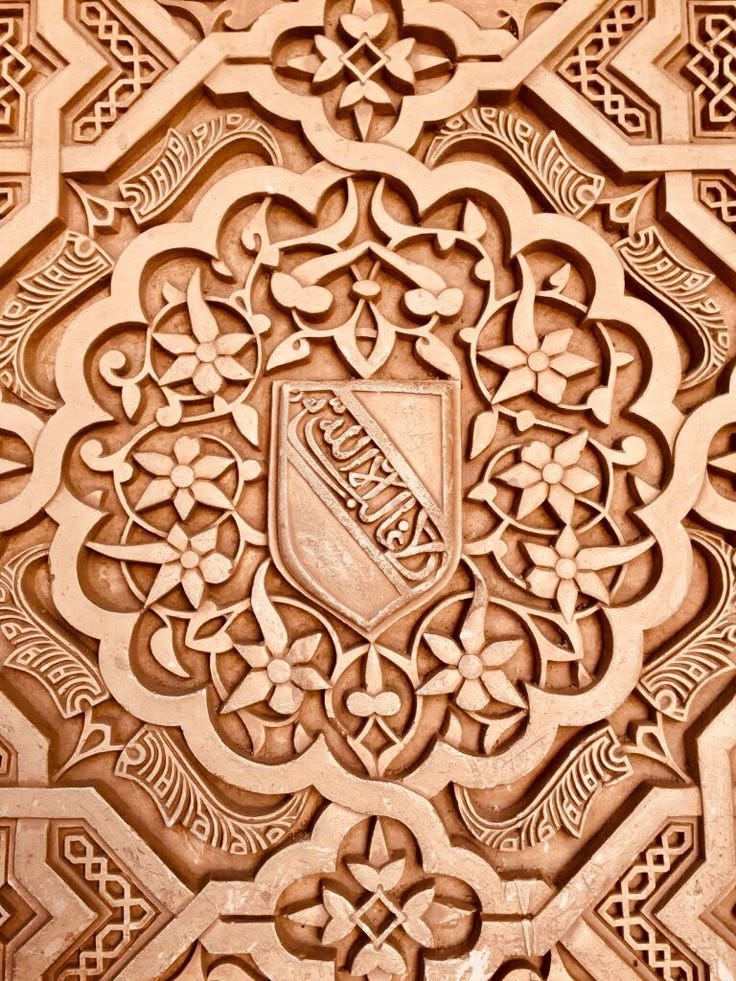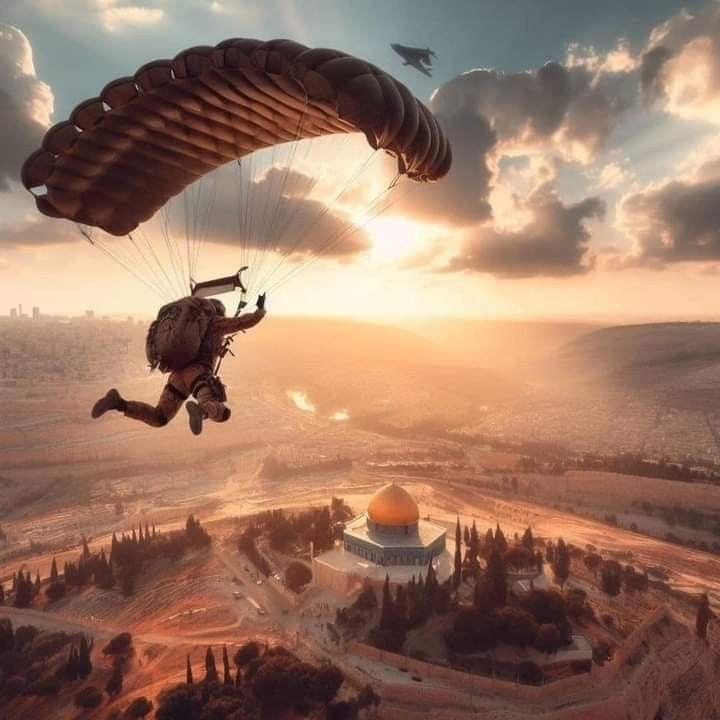From al-Ruhā (Edessa) to al-Aqsa: The Uprising of the East
By Dr. Hesham El-Hamamy (Translated)
After al-Ruhā… History is Centering Itself Now!
Two figures have shown deep interest in the study of the Crusader States within the Islamic world: Dr. Abdel Wahab El-Messiri and the group known as the “New Historians” in the Zionist state.
Dr. El-Messiri needs no introduction. He illuminated his era—and ours, and every era to come—with his monumental work: The Encyclopedia of Jews, Judaism, and Zionism. Despite how tightly linked these three terms often are, the "Master of Our Age" taught us that they are, in fact, unrelated. His interest in the Crusader States stemmed from his studies of settler-colonialism, specifically extermination and replacement.
The “New Historians” are academics born in Israel. In the 1980s, they gained access to military archives and uncovered the lies of the official Israeli narrative. They published documents showing early contact between Arab and Zionist leaders and spoke about the “Arab Jew” who once lived a beautiful life in their homeland.
Among them, the best are Avi Shlaim and Ilan Pappé. The worst is Benny Morris—a staunch Zionist who often repeats, “We are the extension of Europe in this part of the world.” And frankly, he’s right—just as the U.S. is an extension of Europe across the Atlantic.
There are, of course, conflicts, overlaps, and diverging lines among these groups—but ultimately, they are all part of the same whole: the West, and their stance toward the East—us—is the same old Crusader posture that began in 1096 and now speaks again of “remaking the Middle East.”
The Crusades were not religious wars. They were campaigns of invasion, looting, and internal European power struggles—later dressed up as "Crusades."
Likewise, the Zionist state is not a religious project, but—as Benny Morris correctly pointed out—a European extension in the East to protect Western interests. The religious veneer is a fraudulent mobilization tactic, just as the cross and Jerusalem were during the Crusades.
The only ironic difference is that during the Crusades, Jews were sheltered in the bosom of the Islamic world—literally embraced. Which begs the question: Why didn’t Jews at that time claim their so-called “historical right” to Jerusalem, as Zionism does now?
Why didn’t Europe help them back then to establish a national homeland in that sacred city, even though such a move would have aligned with its colonial interests?
Especially considering that, at the time, the Muslim world was at one of its lowest points—far worse than it is now.
And yet we never heard a whisper of a "historical right" or a "national homeland."
Why didn’t Jews at that time claim their so-called “historical right” to Jerusalem, as Zionism does now?
I wish someone would raise this scandalous contradiction—loudly. Because if their claims were valid, why didn’t they emerge when conditions were ideal? The justification for the Crusades was also a "holy book"—Old and New Testaments.
This is a historically grounded, rational question—not the stuff of folklore or dream-stories.
Ilan Pappé, one of the honest New Historians, once said:
“Building modern Israeli nationalism on a religious foundation was a catastrophe for the Jews themselves. It was orchestrated by the Zionist political elite.”
Put a thousand lines under that sentence ❗️
I believe these thinkers constitute a global network—one that renews itself internally and includes Jews and non-Jews alike. It has no religion but holds enormous influence. Its goal is control, carefully calibrated, ensuring that events bend toward its collective interests.
It’s all surprisingly easy—just maintain relationships and tighten bonds. The combination of interests, enticements, and ideological temptations forms a “marvelous blend” that injects vigor, effectiveness, and influence.
People are people, stone is stone, and trees are trees.
History doesn’t just repeat—it repeats with variations on the same historical-musical scale. The notes stay the same, but the melodies differ.
So what does all this have to do with the “New Middle East” they are now planning?
The story goes: The East is East, and the West is West, and never the twain shall meet. And I agree deeply with the imperial poet Rudyard Kipling for reaching that conclusion—one crimson evening.
I never fully grasped the tremendous role Dr. Edward Said played—devoting his life to exposing the concept of Orientalism—until the Al-Aqsa Flood began, stripping away every mask.
I had thought he was simply conducting academic research, influenced by his background as a Palestinian refugee or a deceived Arab.
But I later realized the issue was far more profound: a persistent Western colonial mindset that refuses to accept the East as it truly is. Instead, it wants a tailored East—designed to match its desires, interests, wars, and peaces.
The deep hatred and bitter spite held by Bernard Lewis, the so-called "Father of ISIS," toward Dr. Said only makes sense in this light: because Said grabbed their ideological guts with both hands and threw them in their faces.
He did for us in the Muslim East what no one else has ever done—something great, genuine, and unforgettable. May God have mercy on him.
History doesn’t just repeat—it repeats with variations on the same historical-musical scale. The notes stay the same, but the melodies differ.
They say that when Jerusalem was occupied in 1099, it marked the clear beginning of the Crusader invasion.
But when Al-Ruhā (Edessa) was liberated by Imad al-Din Zenki in 1144—after fifty years of Crusader rule—it was the decisive event that shattered the Crusader image in the East and began the long march toward final victory.
Zenki, with sharp vision, realized the Muslim world needed a grand, strategic act that would shake both East and West.
And he chose the first city the Crusaders ever seized—ruled for five decades—to launch a dazzling surprise military operation, shattering the arrogance and dominance of the Crusaders.
And thus, the sun of certainty rose again.
The fall of Al-Ruhā caused an earthquake in Europe—just as the Al-Aqsa Flood has now done in the West.
And just as in the 12th century, new crusades began forming…
But what a difference between before Al-Ruhā and after Al-Ruhā!
Afterward, the Muslim world recovered its soul from a deadly despair and began the march toward total liberation.
Imad al-Din Zenki passed away. It seemed his epic had ended—but in reality, it had only just begun, as Amin Maalouf recounts in The Crusades Through Arab Eyes.
And indeed, it continued until the last Crusader stronghold in Acre fell in 1291.
The Crusaders stayed 175 years in the most splendid part of the Islamic world—the Levant. Egypt was honored to deliver the final blow under Sultan Al-Ashraf Khalil ibn Qalawun on May 18, 1291, at Acre’s fall.
On Saturday, September 23, 1144, the first wall of the Crusader fortress fell—with the liberation of Al-Ruhā. The fall of the entire fortress became a matter of time. And it happened.
On Saturday, October 7, 2023, the first wall of the Zionist-Western fortress fell—with Al-Aqsa Flood. This is not wishful thinking, but pure truth—from their own mouths.
Now the question is not if, or even how—but rather: when?
Wait for history—it is centering itself now in the Middle East.
And those who stepped forward to open history’s door had prepared for it with everything they had:
thought, planning, capacity, patience, sweat, blood, and tears.
In the East, ordinary people believe:
“God prevails over His affairs.”
That is a cosmic, Qur'anic, and historical truth.
So imagine the belief of the fighters, and those around them—the people of light, resolve, and certainty.





